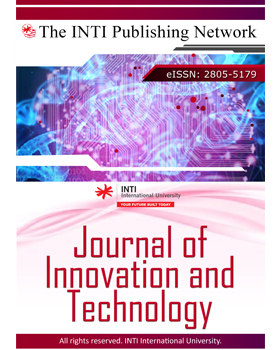
Journal Information
eISSN: 2805-5179
Peer Review
Peer review is an important process to ensure the quality of the papers accepted and published. All papers submitted are subjected to inspection of the experts from the same or related fields, to ensure the relevance of the content to the scope of publication. In this process, comments from experts, including the suitability of the content, originality, novelty, and presentation are given to the authors to improve their papers before the publication.
The Journal exercises the double-blind peer review process to our best to ensure fair editorial decision in the publication process. All the experts who serve as reviewers have the right to accept or reject a submission based on their own decision. The Editorial Team of the Journal, by the recommendation from the reviewers, will either publish a paper without revision, publish the paper after the revision by authors, or reject it from the publication.
Peer Review of Content
JOIT exercise the double-blind peer review process to our best to ensure fair editorial decision in the publication process. All the experts who serve as reviewers have the right to accept or reject a submission based on their own decision. JOIT, by the recommendation from the reviewers, will either publish a paper without revision, publish the paper after the revision by authors, or reject it from the publication in JOIT.
Peer Review of Guideline
Peer review is a fundamental process at JOIT, ensuring the high quality and scholarly rigor of published articles. Every manuscript submitted to JOIT undergoes thorough evaluation by experts in the same or related fields to confirm its relevance to the journal's scope.
The Peer Review Process:
During the peer review process, expert reviewers provide critical feedback to authors aimed at enhancing the quality of their work prior to publication. This feedback encompasses several key aspects, such as:
- - Suitability of Content: Reviewers assess whether the manuscript's subject matter aligns with the aims and scope of JOIT
- - Originality: Reviewers evaluate the novelty and uniqueness of the research presented, ensuring it offers a distinct contribution to the existing body of knowledge.
- - Novelty: Reviewers examine the extent to which the manuscript introduces new findings, perspectives, or methodologies.
- - Presentation: Reviewers assess the clarity, organization, and overall presentation of the manuscript, including its writing style, figures, and tables.
Double-Blind Peer Review:
JOIT employs a double-blind peer review process to promote impartial and objective editorial decisions. In this system:
- - The identities of the authors are concealed from the reviewers.
- - The identities of the reviewers are concealed from the authors.
Reviewer Authority and Editorial Decision:
Experts serving as reviewers for JOIT have the authority to make independent recommendations regarding the suitability of a manuscript for publication. Based on their expert assessment, reviewers may recommend:
- - Acceptance without Revision: The manuscript meets the journal's standards and can be published in its current form.
- - Acceptance after Revision: The manuscript has merit but requires specific revisions to address the reviewers' comments before it can be accepted for publication. Authors will be provided with the reviewers' feedback and asked to revise their manuscript accordingly.
- - Rejection: The manuscript does not meet the journal's standards for publication due to concerns regarding its scope, originality, methodology, or presentation.
Editorial Outcome:
The final editorial decision on a manuscript is made by the JOIT editors, taking into careful consideration the recommendations provided by the peer reviewers. The possible outcomes are:
- - Publication without Revision: Based on positive reviews, the manuscript is accepted for publication in its original form.
- - Publication after Revision: Following the authors' satisfactory revisions in response to the reviewers' comments, the manuscript is accepted for publication.
- - Rejection: Based on the reviewers' concerns, the manuscript is not deemed suitable for publication in JOIT.
ROLES AND RESPONSIBILITIES
JOIT editors guide the journal’s vision, oversee rigorous reviews, make informed decisions, and uphold ethical standards. Reviewers provide expert, unbiased evaluations, ensuring alignment with journal standards and maintaining confidentiality. Authors submit original, accurate work following guidelines and engaging with the review process. The publisher provides infrastructure, manages copyright, supports ethics, and ensures preservation. Please CLICK HERE for more information.


